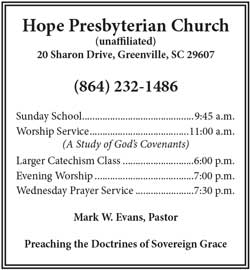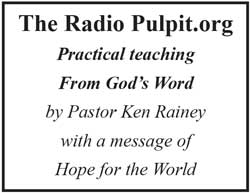Baptists Back Bioethics

On February 16, 2024, the Alabama State Supreme Court handed down a decision affirming the value of frozen human embryos, produced by in vitro fertilization (IVF). Since that time, the media has been writing the news rather than reporting it. With headlines that lead the reader to a false conclusion, reporters confuse the public rather than inform us.
Three families, seeking fertility treatments from two different clinics sued for wrongful death of their remaining embryos. According to the findings of the court, a patient wandered into the storage location of the frozen embryos, retrieved them from their sub-zero temperatures, and subsequently dropped them on the floor, killing them. While the court’s decision was specifically in response to three couples who lost their embryos due to the negligence of the hospital, the heartache of these families has been overshadowed by a radical agenda to paint life-loving people in the worst possible light.
The decision clarified Alabama law pertaining to the “wrongful death of a minor” and noted that not only has the Court “long held that unborn children are ‘children’ for the purposes of the law, but there was also no unwritten exemption for ‘extrauterine children’ – located outside of the biological uterus at the time they are killed.”
Headlines all over the country instantly began defending IVF. Couples turning to this method of Assisted/Artificial Reproductive Technology (ART) to overcome their infertility struggles voiced outrage, fear, and sadness at the decision and what it might mean for their own frozen embryos. Some Alabama clinics briefly suspended their IVF procedures as legislatures began scrambling to pass laws protecting the practice of IVF at state and federal levels.
While reporters focused on defending IVF and chastising conservative pro-lifers for being against families and children, little was said about the actual reason for the decision or the specifics of the ruling – acknowledging frozen embryos as human beings.
Many media outlets have approached the June 12th Southern Baptist Convention (SBC) resolution in the same manner. Rather than reporting on the news, they are creating it with all the dramatics of panic-inducing techniques. Here are a few examples: Politico – “Why the Southern Baptists’ vote opposing IVF could change national politics”; The New York Times – “Southern Baptists vote to oppose the use of IVF”, The Wall Street Journal – “Southern Baptists Vote Against the Use of IVF”, Reuters – “US Southern Baptists condemn IVF procedure.”
Offered by Doctor Al Mohler, the SBC Resolution is set up in two parts: a) “whereas” statements and b) “resolved” statements.
In summary, whereas statements are a beautiful overview of what Scripture says about human beings being made in God’s image and worthy of respect and protection, no matter our age, stage, or location. It also notes that governments are ordained by God to protect us and promote human flourishing, that the creation order of Genesis one expresses the normal union of a husband and wife for procreation, and that many married couples with a “good and godly” desire to have children experience the pain of infertility.
Continuing their whereas statements by clearly stating that God offers grace and compassion, hearing their heartache, the resolution affirms that all children are a gift from God, regardless of how they were conceived. It also asserts that not all technological means of reproductive assistance are “equally God-honoring.” This is where the resolution focus shifts to the technical process of IVF causing concern focusing on the ethical treatment of embryos during the IVF process.
Due to the exorbitant cost and complex risk of the process for the intended mother, far more embryos are created than are typically implanted. Following genetic testing and evaluation, many are discarded and never implanted. This leaves sometimes dozens of embryos from each IVF cycle to be frozen indefinitely, donated to research, or left to die over time. The SBC Resolution estimated that between 1 – 1.5 million embryos are currently frozen in the United States alone due to this practice.
Considering all these points, the SBC “resolved” to call “all Southern Baptists to reaffirm the unconditional value and right to life of every human being (including embryonic humans), and only to utilize reproductive technologies consistent with that affirmation especially the number of embryos generated in the IVF process.” A love for children and the gift they are, no matter their manner of conception, was affirmed a second time as it called for loving your neighbor and advocating for the government to “restrain actions inconsistent with the dignity and value of all human beings” (embryonic humans included).
As for solutions for infertility and the vast numbers of frozen embryos, the resolution encouraged the adoption of children who have lost their families as well as frozen embryos, and “to consider the ethical implications of assisted reproductive technologies…” It commended couples who have pursued infertility treatments that are consistent with the dignity of human embryos and those who have adopted frozen embryos while committing to pray on behalf of those struggling with infertility.
While this is the first time the Southern Baptist Convention has tackled a bioethical issue, it is not likely to be the last. Pastors across the country will now be challenged with communicating the implications of this unbinding resolution. More importantly, men and women in the pew committed to honoring God with all their lives are hurting with the unfulfilled desire for children. Clarity on such a complex subject is even more important. The full process of IVF and the subsequent decisions required by each step is rife with ethical quandaries. Considering those choices ahead of time may save much heartache and avoid the rocks picked up by the snowball of IVF rolling down the hill faster than we can keep up with it. Infertility has always caused deep pain in the brokenness of a fallen world. We are called to extend compassion to each other in our longings. Let us remember that His ways are not our ways, and His thoughts are higher than our thoughts. We will one day be whole when pain and suffering will be over, and we see Jesus face to face.


















